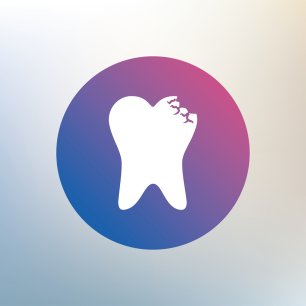Many people are surprised to learn that, for years, they have actually been brushing their teeth the wrong way. Brushing your teeth the wrong way may cause oral health problems. Learn how to brush your teeth the right way and you will protect them for many years to come.

The common way people brush their teeth is the back and forth motion, similar to sawing back and forth, until you feel like your teeth are clean and slippery. This is the wrong way to brush your teeth. This motion causes you to scrub away tooth enamel, which will make your teeth sensitive to hot and cold liquids and food much sooner then they normally would be. This sawing motion is very abrasive to your teeth and gums. Over brushing can increase your chances of developing cavities and receding gums. This method also does not clean effectively. Since the bristles are moving back and forth, they are essentially bouncing from one tooth to the next, which causes you to miss the spaces in between the teeth to remove plaque and other tiny particles of food.
So what is the proper way to brush your teeth? Start by placing your toothbrush at a 45 degree angle to where the teeth meet the gums. Then gently move your toothbrush back and forth and making sure the bristles cover each tooth and work their way around the sides of the tooth. This method allows you to find all of the food particles and plaque in the spaces between your teeth.
The importance of brushing teeth properly is overlooked, but it is an important part of keeping your teeth and gums healthy. Using the right method to brush your teeth will prevent plaque build-up that is harmful and can lead to many oral health problems. Brushing properly will prevent:
• Gingivitis: a gum disease that develops when there is plaque beneath the gum line and separated the teeth from gums
• Cavities: permanent damages in the form of tiny hold on the hard surface of the teeth
• Tooth Decay: damage that occurs when bacteria in your mouth make acids that eat away at a tooth
It’s not easy to relearn brushing after you’ve been using one method. Switching over will take some getting used to, but the results will speak for themselves. If you have any questions regarding the correct method of brushing your teeth, please contact our office.




 Chicago IL Cosmetic Dentist | 5 Tips for Denture Wearers
Chicago IL Cosmetic Dentist | 5 Tips for Denture Wearers Fill Gaps
Fill Gaps 
